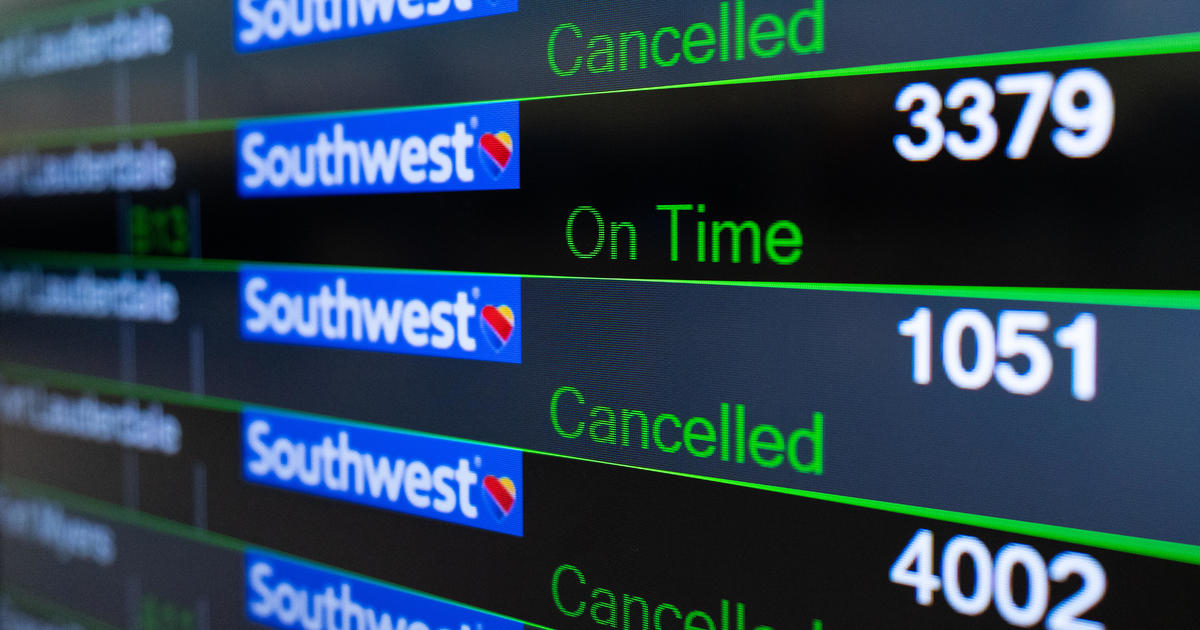Levy Of $5 Kicks In For New Professionalism Center For Lawyers
BALTIMORE (AP) -- The Maryland Judiciary last month began billing the state's lawyers $5 to help fund a new center aimed at improving civility in the profession and ensure that lawyers stay focused on serving clients and promoting the proper administration of justice.
But what exactly are the lawyers getting for that money -- which, according to some observers, may be an unconstitutional charge?
The Maryland Professionalism Center's day-to-day focus will be on holding events and courses promoting ethical and civil behavior of and among lawyers, judges and court personnel, said Monise A. Brown, the center's executive director.
"The goal is to provide resources to enhance professionalism in the state of Maryland," Brown added. "Professionalism goes across the board for all attorneys, including judges."
The center's first major event will be a symposium next spring that will enable lawyers and judges to weigh in on issues that have divided the profession, including whether continuing legal education courses should be mandatory and if indigent Marylanders should have a right to fee counsel in civil cases.
"We are going to have people on both sides of the conversation come together" on these controversial topics, she added. "We want to make sure Maryland attorneys have a forum in which they can discuss these issues."
But the Court of Appeals' creation of the center -- and the $5 assessment on bar members for its funding -- has not been without controversy, including from members of the high court itself.
Judge Robert N. McDonald dissented from the court's adoption of the rule that created the center in March, saying the Judiciary's $5 assessment violates the Maryland Constitution's requirement that public fees first gain legislative approval or assent before being assessed. He cited Article III
Section 52 of the constitution, which requires all appropriations to be made through state budget legislation.
"It may be that the court is simply taking an `aggressive' position on its prerogatives for the benevolent purpose of improving the legal profession and, ultimately, our system of justice," McDonald wrote in his March 11 dissent. "If so, that would be a mistake, in my view, for an institution that is the final word on whether others have faithfully adhered to the state constitution. A high court often best asserts its constitutional powers in recognizing the limitations of those powers under the constitution it construes."
Judge Sally D. Adkins also voted against adoption of the rule but did not issue a written dissent.
The court also adopted the rule over the vocal opposition of attorney George W. Liebmann, who attended the March voting session at the high court and has not remained silent.
The Court of Appeals' reason for being is to dispense justice, not to be "into the lobbying business" of telling lawyers how to behave, Liebmann said Tuesday. He derided the $5 assessment as a compelled contribution that violates the free-speech rights of individual attorneys.
"It's a distraction for members of the court to be involved in administering programs," said Liebmann, of Liebmann and Shively P.A. in Baltimore. "It's not legitimate for the court, as opposed to the legislature, to impose on Maryland what amounts to an integrated bar association in which members are compelled to make contributions to something with which they might not agree. . It's just not a business the court should be in."
According to a legislative analysis, the $5 is being "redirected" from the annual $20 assessment of the Client Protection Fund of the Bar of Maryland, which attorneys must pay as a condition of practicing law in the state. The Client Protection Fund reimburses clients whose money has been stolen from them by their lawyers.
In addition to the $5 from each attorney, the rule creating the Maryland Professionalism Center stated that it will receive funds from fees charged to newly admitted attorneys for a mandatory one-day professionalism course -- which the center runs -- and "from such other sources as may be provided for in the judicial budget."
Court of Appeals Judge Lynne A. Battaglia, who chairs the center's board, said in a statement last May that the facility is "an independent, self-sustaining organization (that) can focus on training opportunities and long-term goals to promote ongoing, improved professionalism within the Maryland bench and bar."
Battaglia also chaired the center's predecessor, the Judiciary's Commission on Professionalism.
Information from: Steve Lash of The Daily Record of Baltimore, http://www.mddailyrecord.com
(Copyright 2013 by The Associated Press. All Rights Reserved.)



